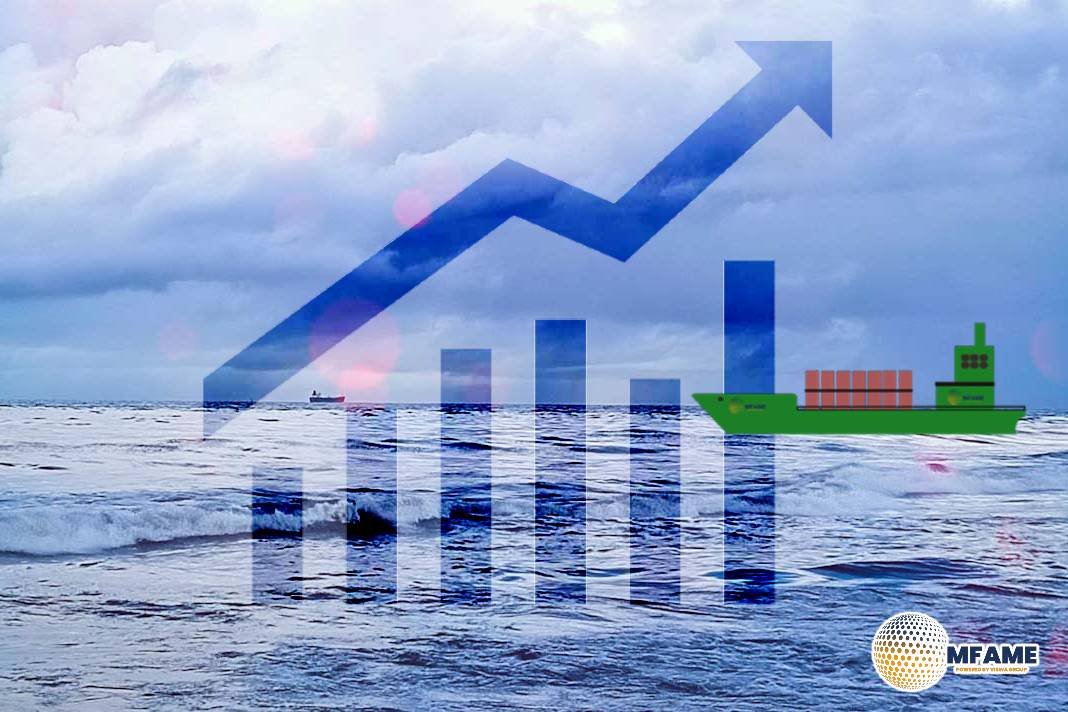- China is expected to maintain its lead in the global shipbuilding market in the current year and extend this dominance into 2024, according to market watchers and shipbuilders.
- China’s shipbuilding industry is anticipated to maintain high performance in 2023, driven by a global recovery in new vessels and offshore engineering markets.
- The industry is expected to grow further in 2024, with China leading in the export sector, driven by increased global demand for vessels using alternative power sources.
- The future of the shipbuilding industry is envisioned to include intelligent ships with autonomous control, remote operation, and adaptive learning capabilities, driven by information technology and artificial intelligence.
Sustained Dominance Anticipated
China is poised to maintain its dominance in the worldwide shipbuilding market throughout the current year, with industry observers and shipbuilders anticipating this trend to endure until 2024.
With robust growth in both new orders as well as output this year, Chinese shipyards have demonstrated greater innovation, productivity, and supply chain advantages compared to foreign rivals, they added.
China’s shipbuilding output climbed 12.3 percent year-on-year to 38.09 million deadweight tons (dwt) in the first 11 months of 2023, accounting for 50.1 percent of the world’s total, data from the Ministry of Industry and Information Technology showed.
Anticipation Of Growth In 2024
New orders soared 63.8 percent every year to 64.85 million dwt, taking up 65.9 percent of the world’s total during the period, according to the data.
China’s shipbuilding industry is expected to maintain high performance in 2023, driven by a global recovery in the new vessels and offshore engineering markets, said He Guangshun, director of the marine strategic planning and economics department at the Ministry of Natural Resources.
The nation’s shipbuilding industry is poised to grow further in 2024, taking the lead in the export sector, said Zheng Huiming, president of the Zhejiang Society of Naval Architects and Marine Engineers, which is based in Hangzhou, Zhejiang province.
Full-Capacity Operations At New Times Shipbuilding
This will be propelled by increased global demand for new vessels utilizing liquefied natural gas, methanol, hydrogen, and fuel cells as power sources, as well as the quick development of China’s three shipbuilding clusters in the Yangtze River Delta region, Pearl River Delta region, and Bohai Bay area, said Zheng.
China’s shipbuilding industry, which has benefited from the tangible growth of the Belt and Road Initiative, has also expanded into many new overseas markets and emerging sectors over the past decade, he said, adding that it will explore diversified paths for market expansion in the next phase.
New Times Shipbuilding Co’s three docks are operating at full capacity, with orders rolling into the first half of 2027, said Du Haiming, the assistant head of the company’s marketing department.
International Delivery Success
The shipbuilder, based in Jingjiang, Jiangsu province, has delivered 24 vessels to foreign shipowners to date this year, Du added.
China Merchants Jinling Shipyard (Nanjing) Co, which is based in Nanjing, Jiangsu province, said it has delivered several 7,000-unit car carriers to its overseas clients this year. The shipyard is also building a 9,400-unit car carrier and developing ships capable of carrying over 10,000 vehicles.
Xu Lian, vice president of the company, said intelligent ships will be the future of the shipbuilding industry due to the rapid development and widespread application of new-generation technologies such as information technology and artificial intelligence.
Defining Intelligent Ships
Intelligent ships are those that have autonomous control, remote operation, and adaptive learning capabilities. They are capable of making decisions autonomously and executing tasks based on environmental changes and mission requirements.
China’s shipbuilding industry will maintain a stable development trend and continue to lead in the global market in 2024, Xu said.
Leveraging the advantageous business opportunities of its ports and a well-developed logistics network, the Yangtze River Delta region, particularly in Shanghai and Jiangsu province, has cultivated robust capabilities in manufacturing and production support, said Qu Huili, head of the statistics division at Shanghai Customs.
Formation Of LNG Carrier Production Cluster
For example, Shanghai-based Hudong-Zhonghua Shipbuilding (Group) Co was the only builder of large-scale LNG carriers in China before.
But this year marked a significant shift as several other major shipyards, including Jiangnan Shipyard (Group) Co, Dalian Shipbuilding Industry Co, Jiangsu Yangzijiang Shipbuilding Group, and China Merchants Industry Holdings Co, have all started construction for their inaugural LNG carrier orders.
This development signifies the emergence of a robust industrial cluster in China dedicated to the production of large LNG carriers.
The holding orders of China’s shipbuilding industry totaled 134.09 million dwt at the end of November, expanding 29.4 percent year-on-year and representing 53.4 percent of the global market share, according to the Ministry of Industry and Information Technology.
Did you subscribe to our daily newsletter?
It’s Free! Click here to Subscribe!
Source: China Daily


















Completely in agreement with the sentiments expressed above – this post is superb!
Your post reminded me that it’s okay to not be okay sometimes. Thank you for your honesty.
Your post brought tears to my eyes, but in the best way possible. Thank you for sharing your story.
Thanks for this, mandatory reading.
I was recommended this website by my cousin. I am not sure whether this post is written by him as nobody else know such detailed about my difficulty. You are wonderful! Thanks!
Usually I do not read article on blogs, however I would like to say that this write-up very compelled me to take a look at and do so! Your writing taste has been amazed me. Thanks, quite nice post.